Understanding Matter
You'll start this course by learning about matter. Matter is anything that has mass and takes up space, so every structure in your body consists of matter. You'll learn about the three main states of matter (solids, liquids, and gases), where they are in your body, and how they change from one state to another. You'll also learn about the particles that make up matter, the differences between elements and compounds, and physical and chemical characteristics of substances. The lesson will conclude with a discussion of surface tension and its effect on premature babies.
Understanding Energy
This lesson will go over the very interesting topic of energy—the ability to perform some sort of activity or generate heat. You'll learn the difference between potential and kinetic energy. You'll also learn about three different types of temperature scales and how to convert temperature readings from one scale to another. The lesson will discuss joules and calories, two other units that measure energy, and talk about the kilocalorie (Calorie), a way to measure the energy value in food. You'll examine the topic of specific heat and learn why the high specific heat of water is so important to your body. At the end of the lesson, there will be a discussion of endothermic and exothermic reactions and how they relate to the food that you eat. Along the way, you'll perform some activities to help you understand the material in this lesson.
Measurements in Chemistry
In this lesson, you'll explore measurements in chemistry. You'll focus on volume, length, mass, and density and compare the United States's system of measurement with the metric system of measurement. You'll learn why scientists and health care professionals primarily use the metric system and how to convert from one system to another. The lesson will also discuss the difference between mass and weight, and introduce you to the topics of density and specific gravity. In the last chapter, you'll take a look at a sample lab report to tie all these topics together.
The Structure of an Atom
In this lesson, you'll learn about the structure of an atom. You'll examine the three major subatomic particles—protons, neutrons, and electrons. You'll learn about their location, electrical charges, and relative sizes, and how chemists count how many subatomic particles are present in an atom of an element. The lesson will also talk about the difference between atoms and ions, and you'll learn which subatomic particles can vary in number in the atoms of an element. You'll also study the way electrons fill energy levels around the nucleus of an atom. The lesson will end with a discussion of the use of radioactive isotopes in medicine.
The Periodic Table of the Elements
In this lesson, you'll explore the organization of the Periodic Table of the Elements. You'll learn about a famous Russian scientist who's known as the father of the modern periodic table, and why the development of this table was so important. The lesson will talk about the three major classes of elements—metals, metalloids, and non-metals, and you'll learn about their major characteristics. You'll also learn about some specific elements and the roles they play in the function of your body. You'll revisit the topic of valence electrons, and discover why they determine whether or not atoms of an element will combine with other atoms. Finally, you'll examine the very important role that the element iron plays in your body and learn about a condition called iron deficiency anemia.
Chemical Bonds
This lesson will cover four types of chemical bonds—true covalent, polar covalent, ionic, and hydrogen bonds. You'll learn what these bonds have in common with romantic relationships and discover which of these bonds are strong and which are weak. The lesson will also talk about different ways that scientists represent molecules, and you'll learn about molecular, structural, and electron-dot formulas. You'll study the concept of electronegativity and find out how differences in electronegativity determine the types of bonds that are formed.
Chemical Equations
In this lesson, you'll explore the language of chemical equations. You'll learn how to interpret the letters, symbols, and numbers that are used to write chemical equations. The lesson will talk about the differences between reactants and products, and you'll come to understand the importance of the Law of Conservation of Mass. The lesson will take the mystery out of balancing chemical equations, and you'll go over a step-by-step method for balancing them yourself. You'll also study the topic of chemical equilibrium and the importance of reversible reactions.
Chemical Kinetics








 Canvas Continuing Education
Canvas Continuing Education Join Our Email List
Join Our Email List 

